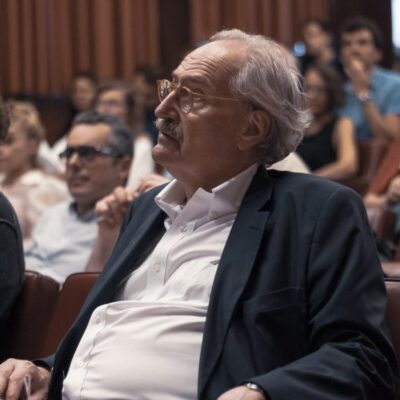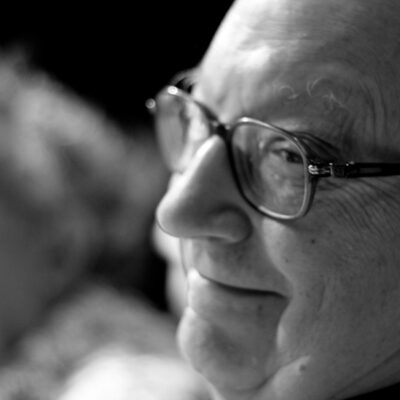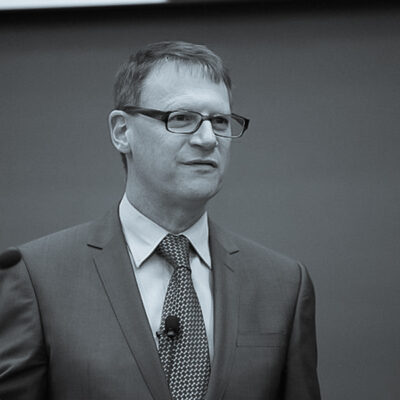On June 13th, 2024, the University of Belgrade will confer the insignia of Doctor Honoris Causa upon Étienne Balibar, Axel Honneth, and Jonathan Wolff. The initiative was launched by the Institute for Philosophy and Social Theory to honor these three distinguished, world-renowned thinkers in recognition of their excellence in research and the partnerships they have established with the Institute.
Axel Honneth
Goethe University Frankfurt and Columbia University

Axel Honneth is Jack C. Weinstein Professor of Humanities at the Philosophy Department of Columbia University, New York, and former Director of the Institute for Social Research in Frankfurt am Main. Axel Honneth is the key figure of the “third generation” Frankfurt School and contemporary Critical Theory. Axel Honneth’s theoretical perspective, his comprehensive “theory of recognition”, represents Critical Theory as engaged theory in its most self-reflexive and nuanced incarnations. On the grounds of his foundational concept of “recognition”, Honneth has over the past two decades formulated a substantive critique of injustice and domination in contemporary capitalism, which provides social-theoretical insight into the deep-seated causes of persistent forms of injustice, but which is at the same time post-metaphysical, able to adequately respond to the charges of essentialism, particularism and perfectionism, and which overcomes the danger of epistemological authoritarianism through developing a particular sensitivity for the experiences of ordinary social actors. Honneth’s works retain the capacity to deepen our understanding of the forms of social injustice and domination that characterize societies undergoing post-socialist transformation such as Serbia, thus enabling us to “engage” these phenomena more adequately. There is also a deep undercurrent of theoretical resonance between Honneth’s perspective and the legacy of engaged theory that exists in this region. One important wellspring of Axel Honneth’s thought, which is manifested in his early works lies in the rich tradition of philosophical anthropology, among other in the philosophical-anthropological standpoint of the young Karl Marx, which at the same time represents the theoretical basis of the globally most influential social-scientific and humanities school of thought that has emerged from this region. This is, of course, the Yugoslav Praxis School, or Praxis Orientation, the school of thought that Miladin Životić himself belonged to, and which provided the theoretical foundation for his lifelong motivation to be engaged, throughout the changing political and ideological climates of the former Yugoslavia and the post-Yugoslav era.
Étienne Balibar
University of Paris X Nanterre and University of Columbia

Étienne Balibar is Professor Emeritus of moral and political philosophy at Université Paris X – Nanterre and Distinguished Professor of Humanities at the University of California, Irvine. He is also currently Anniversary Chair Professor at the Center for Research in Modern European Philosophy (CRMEP) at Kingston University and Visiting Professor at the Department of French and Romance Philology at Columbia University. Professor Étienne Balibar is one of the most important and most democratically inspiring critical thinkers of our times, whose work has considerably enriched the fields of philosophy, humanities and social sciences, by shifting numerous well-worn paths of the tradition. His works span topics such as emancipation, civility, secularism, anti-Semitism, democracy, communism, Europe, civil disobedience, resistance, insurrection and violence, and figure as classics in the field of critical race studies and the interdisciplinary school of cultural studies. Balibar’s social engagement persistently follows his philosophical efforts, blurring the boundaries between his practice and theory. The mutual affinities of Balibar’s work and the Praxis School are reflected respectively in their complex reinterpretations of Marx – reinterpretations that radically question the teleological character of historical processes and the appearance of the revolutionary subject that would be guaranteed by such teleology. It is in similar ways that those two lines of thought, those of Balibar and the Praxis authors, open up the space for contingency, critique, and overall, for social engagement. Both of them build on a precise diagnostics of the fact, that, without high levels of societal engagement, a substantial social transformation which presupposes the overthrow of capitalism, is impossible. Therefore, it follows that such a change can happen only in a radically democratic context, and it is our task to think through the possibilities of realizing it.
Jonathan Wolff
Blavatnik School of Government, Oxford University

Jonathan Wolff is the Alfred Landecker Professor of Values and Public Policy at the Blavatnik School of Public Policy at the University of Oxford, UK, who specializes in contemporary moral and political philosophy as well as in public policy. Throughout his extensive oeuvre Wolff shows that despite the failure of real-socialist regimes, Marx’s key ideas remain a fruitful tool for the critique of capitalist, bourgeois society. In his other works, Wolff deals with contemporary liberal political philosophy. He is the author of several influential works which not only present a sharp critique of the prevailing distributive paradigm of thinking about inequality, but which also propose a different understanding of “a society of equals.” Unlike political philosophers who rely on thought experiments and hypothetical scenarios in their works, Wolff develops his vision of a society of equals by relying on the experiences of members of marginalized social groups. Taking seriously the real-life experiences of people who are marginalized and/or socially excluded, Wolff seeks to show that what makes a society truly equal is not the redistribution of economic resources, but the effort to overcome unjust asymmetric relations between citizens through an “egalitarian ethos,” that is, thorough changes in social norms and value systems that marginalize and exclude members of certain social groups. Throughout his work Jonathan Wolff shows that philosophy, as an academic discipline, can significantly contribute to a deeper understanding of social reality and that philosophy is indispensable in the process of making decisions and changing society for the better.
The Point is to Change It
Many political philosophers happily repeat Marx’s 11th Thesis on Feuerbach (inscribed on his gravestone) ‘The Philosophers have only interpreted the world. The point is to change it.’ Marx had a theory of change: proletariat revolution. But what theory of change is appropriate in current circumstances? In this talk I will consider the steps that typically foreshadow and lead to policy change and the potential for philosophy and philosophers to contribute.